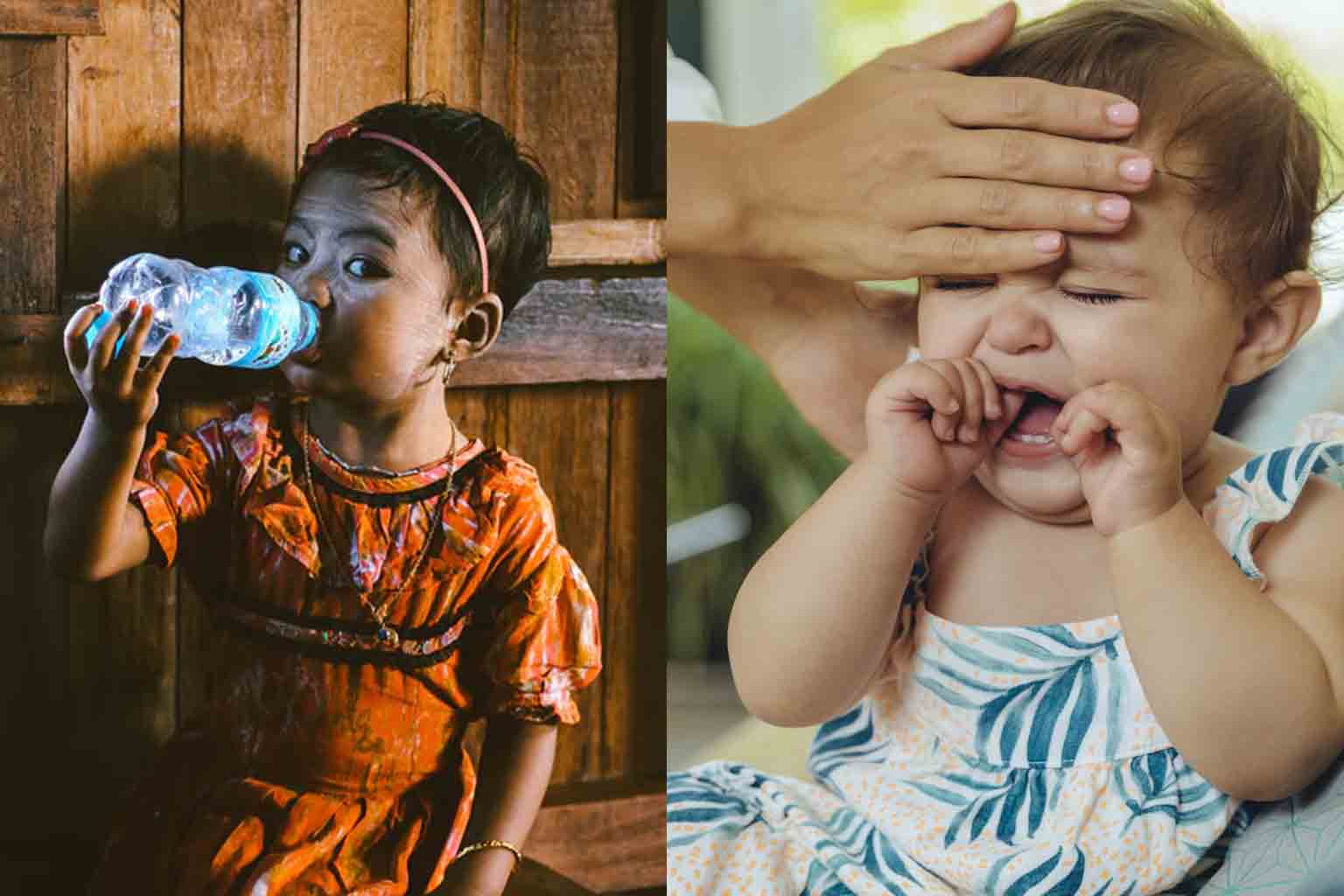Having a newborn around the house, taking care of them, feeding them, playing with them, and adoring them. Everything is so overwhelming about being a parent. However, it comes with a great deal of hard work and other things. For example, if we talk about dehydration in babies, it can be a little tricky to see. Therefore, we are here today with our article to help you out with infant dehydration – their symptoms, causes, and precautions.
If it looks like all your baby does is sleep, eat and deliver dirty diapers, things are exactly as they should be. Babies’ stomachs are tiny and, compared with bigger kids and adults, reserve less fluid in their bodies. Add that to their super-busy metabolism and you can understand why they need to eat (or, more accurately, drink) around the clock. Even though babies can get all the fluids they require from their regular feedings, if your baby is exposed to extreme temperatures or loses fluids due to vomiting, diarrhea, or sweating, they can easily become dehydrated.
Infant Dehydration Symptoms
If your baby is vomiting, has diarrhea, or else been ill, or if you’ve been outdoors in hot weather for an extended amount of time, you should watch carefully for infant dehydration symptoms. Call your doctor within 12 hours if you note any of the following signs of dehydration in your baby:
- Fewer than 6 wet diapers in a whole day or diapers that stay dry for two or three hours, which might be a sign that urinary output is unusually scarce
- Urine that appears darker yellow and concentrated
- Dry mucous membranes, for example, you may notice cracked lips
- Tearless crying of the baby
- Skin appears dry and slack
- Sunken eyes
- Listlessness
- Sunken fontanelle
In some extreme cases, babies need treatment right away and may require rehydration with intravenous (IV) fluids. Go to your child’s doctor or the emergency room instantly if you notice your baby:
- Has not wet a diaper for six or more hours
- Is fussy
- Is very sleepy
- Has cold or blotchy-looking hands and feet
- Has very dry mucous membranes like dry mouth, cracked lips, dry eyes
Infant Dehydration Treatment in Warm Weather
 Infant Dehydration
Infant Dehydration- When it’s hot outdoors, the most crucial step to prevent dehydration in your baby is by protecting them from extreme weather— which means making sure they stay out of the sun (also helpful to safeguard that delicate skin) and dressing them in light, breathable clothing.
- Never wrap her up in blankets while she’s sleeping (since overheating at night-time has been linked to SIDS).
- Dressing Your Baby for the Heat
- Dressing baby For All Weather
- Prevent dehydration due to illness
- The most likely scenario for dehydration in babies is when they’re sick – Your baby can lose a lot of fluids quickly if she’s vomiting, has diarrhea, or refuses to eat because of a sore throat or mouth.
- Generally, these symptoms are caused by a virus. Although you can’t completely prevent your baby from getting the cold or flu, good hand-washing helps (guide your caregiver, too). So, does staying informed with your child’s well-baby visits and immunizations, since there is a vaccine for rotavirus — one of the most common causes of extreme diarrhea in infants and toddlers — that your baby can get at 2 months old and the flu vaccine at 6 months old.
Dehydration in Infant – Treatment
- Even if your breastfed or formula-fed baby is vomiting or has diarrhea, continue to offer breast milk and/or formula frequently, at least as often as normal if not more, if they can take it.
- Wait an hour after your baby throws up and then feed a teaspoon of liquid every 10 minutes for an hour. If your baby can keep it down, you can progressively increase the amount you’re offering.
- For older babies who have started solids, water might be sufficient in mild cases. If there is considerable fluid loss, specifically if your baby has a combination of diarrhea and vomiting, your doctor may recommend offering older babies liquids for electrolyte replacement (for example drinks like Pedialyte) to replace sodium and potassium lost in diarrhea and/or small amounts of water. Make sure to follow your doctor’s advice about how and when to give these.
Also Read: Sudden Infant Death Syndrome

